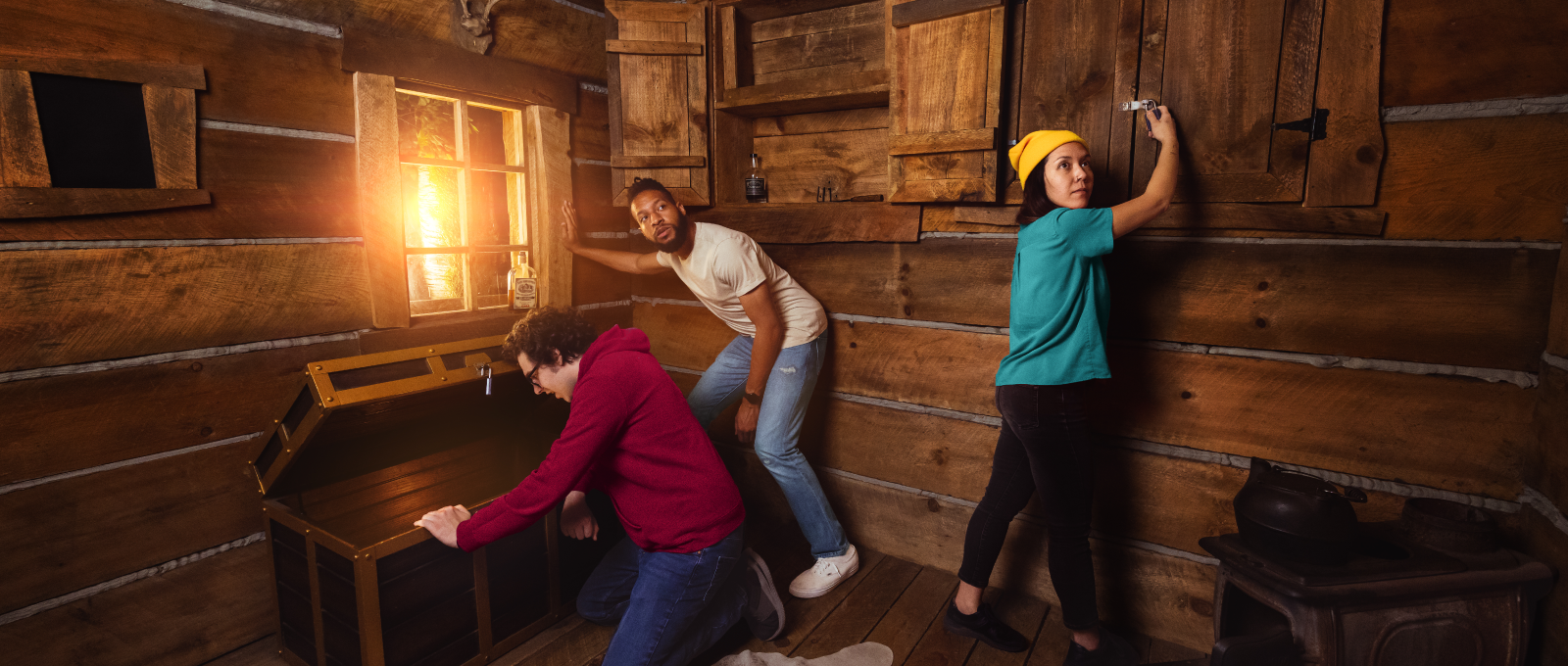Group Activities at Minneapolis Escape Room-- Perfect for Pals and Family
Group Activities at Minneapolis Escape Room-- Perfect for Pals and Family
Blog Article
Team Methods: Exactly How to Collaborate Effectively in an Escape Area
Groups need to proactively pay attention to each participant's understandings, assign roles that straighten with specific toughness, and maintain regular check-ins to make sure emphasis and avoid redundancy. By fostering an atmosphere that values communication and adaptability, teams can substantially enhance their efficiency and success rates.
Establish Clear Interaction

To help with clear interaction, it is important to assign a main point of get in touch with for information dissemination. This function involves summarizing findings and suggested approaches to guarantee everybody stays on the exact same page. Furthermore, embracing a methodical technique to conversations can avoid chaotic exchanges. For instance, quick, concentrated updates from each staff member can keep the group educated without frustrating them with info.
Assign Roles Strategically
While clear interaction establishes the foundation for reliable teamwork, designating duties purposefully guarantees that each group participant's staminas are made use of efficiently. In a retreat space scenario, the time-sensitive and complicated nature of difficulties necessitates an efficient strategy to job delegation. By identifying and leveraging individual expertises, teams can maximize their analytic capabilities and improve total performance.
Someone with a keen eye for information might excel in finding concealed things, while a rational thinker can be better suited to addressing problems. This function commonly needs solid business and interpersonal abilities.
2nd, make certain that duties are flexible and adaptable. As brand-new difficulties emerge, the group should be able to pivot, reallocating jobs as needed. This versatility assists keep energy and stops bottlenecks that could occur because of rigid duty assignments.
Eventually, a calculated approach to role job not only takes full advantage of the toughness of each staff member but also cultivates a natural atmosphere, driving the team towards a successful retreat.
Use Diverse Skills
Recognizing and taking advantage of the varied skills within your group can significantly boost your efficiency in an escape room. Each group participant brings unique toughness to the table, and effectively leveraging these capacities can accelerate analytical and boost total efficiency. A group member with strong logical skills could stand out at analyzing complicated codes or patterns, while another with eager observational capacities might promptly identify covert hints that others could forget.
Reliable interaction is vital to making use of these diverse abilities. Encourage employee to voice their insights and concepts quickly, making certain that all potential remedies are thought about. This inclusive approach cultivates a vibrant environment where creative thinking and vital thinking can flourish. In addition, assigning tasks that straighten with each participant's toughness can protect against traffic jams and make certain that development is continual.
Additionally, diversity in skills commonly equates to variety in believing styles, which is vital in a getaway area setup. While some difficulties might need rational thinking and precision, others might gain from creative and association of ideas. By acknowledging and leveraging this diversity, groups can resolve a broader array of challenges a lot more successfully, consequently enhancing their possibilities of a successful escape.
Manage Time Efficiently

Identify visible problems and split jobs based on group members' toughness, making certain that no one is still. This method can help keep the group concentrated and stop time from sliding away unnoticed.
In addition, avoid passage vision. If a puzzle is taking too long, rotate team find here participants or go on to one more obstacle, returning later on with fresh viewpoints. Communication is critical-- maintain everybody updated on solved puzzles and remaining tasks to prevent repetitive initiatives.
Last but not least, use any type of hints or hints sparingly yet strategically - best escape room. Understanding when to ask for assistance can conserve beneficial time. By adhering to these time administration concepts, teams can considerably boost their chances of a successful and delightful getaway area experience
Debrief and Show
Reflection is a crucial element of team development and renovation in the context of getaway rooms. When the challenge is finished, whether effectively or otherwise, it is critical for the team to participate in an organized debriefing session. This process permits staff member to assess their efficiency, recognize toughness, and pinpoint areas for improvement.
Begin the debrief by reviewing what worked out. Highlight certain circumstances of effective interaction, analytic, and collaboration. Acknowledging these positive habits reinforces them and encourages their repetition in future challenges.
Go over minutes of complication, miscommunication, check out this site or ineffective techniques. Encourage an open and useful discussion where group members can share their perspectives without worry of objection.
Conclusion
To conclude, effective collaboration in a retreat area is predicated upon clear communication, tactical role assignments, the reliable usage of varied abilities, and proficient time management. Normal check-ins and structured debriefings are important for preserving emphasis and cultivating continuous renovation. By creating a cohesive and flexible group setting, the possibility of efficiently fixing click to read more problems and achieving the purpose of running away the room is significantly improved. This approach not only ensures success but also promotes cumulative development and learning.
Report this page